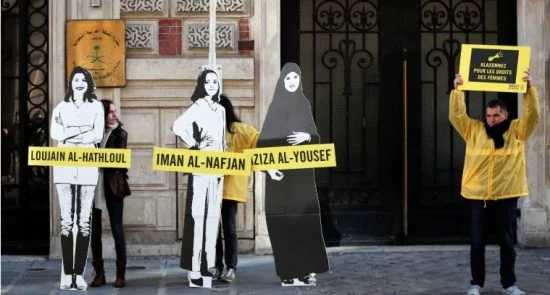Asia, Human rights March 17, 2019
Short Link:A Sham Trial Exposes Saudi Arabia’s Continued Disrespect for its Citizens
Hala Al-Dosari, an activist, scholar and writer from Saudi Arabia. He focused mostly on reforms, participatory politics and the pervasive abuse of power in Saudi Arabia.
Ariana News Agency-
People in Saudi Arabia expected an end to the persecution of civil society activists after the state acknowledged his brutal murder. Instead, the regime has doubled down by continuing to prosecute a group of female activists accused of undermining Saudi Arabia’s security. On Wednesday, their sham trial began — nearly a year after they were detained- Washington Post.
The women have been subjected to horrific torture and sexual harassment, but in a statement the government claimed the accused were enjoying their full rights. Meanwhile, state-linked social media accounts have already virtually convicted the activists and are asking for the maximum punishment. An enthusiastic member of the ruling family posted a poll to measure support for the death penalty. Such callousness is reprehensible.
Against this background, Saudi Arabia decided to appoint its first female ambassador to the United States, Princess Reema bint Bandar. It’s another opportunity to push an apologetic reform narrative amid U.S. congressional scrutiny and pressure. Many will take the bait, as they did when Crown Prince Mohammed bin Salman first came to power.
In our collective conscience as a nation, these female activists facing trial — and the men who support them — were instrumental in influencing reforms.
We can never discuss the crippling impacts of the male-guardianship system without recalling Aziza al-Yousef, a retired university professor, submitting 15,000 signatures in a petition to the royal court. The ban on driving would not have been lifted without Loujain al-Hathloul driving from the United Arab Emirates to the Saudi border, demanding to use her Gulf Cooperation Council-valid driving license on Saudi lands just like her male fellow citizens.
The ability of women to mobilize their communities attests to the leadership of Eman al-Nafjan, a blogger and a linguistics professor, in promoting the driving campaign. The capacity-building of women to participate in municipal elections owes a big debt to Hatoon Al-Fassi, a renowned professor of women’s history. Nouf Abdulaziz, a TV producer and outspoken activist for prisoners of conscience, was arrested for her acts of solidarity.
These women worked organically to leverage their community support and ease the severe restrictions imposed on free expression, assembly and women’s rights. Their only crime is caring enough for their country, despite all the risks and intimidation.










